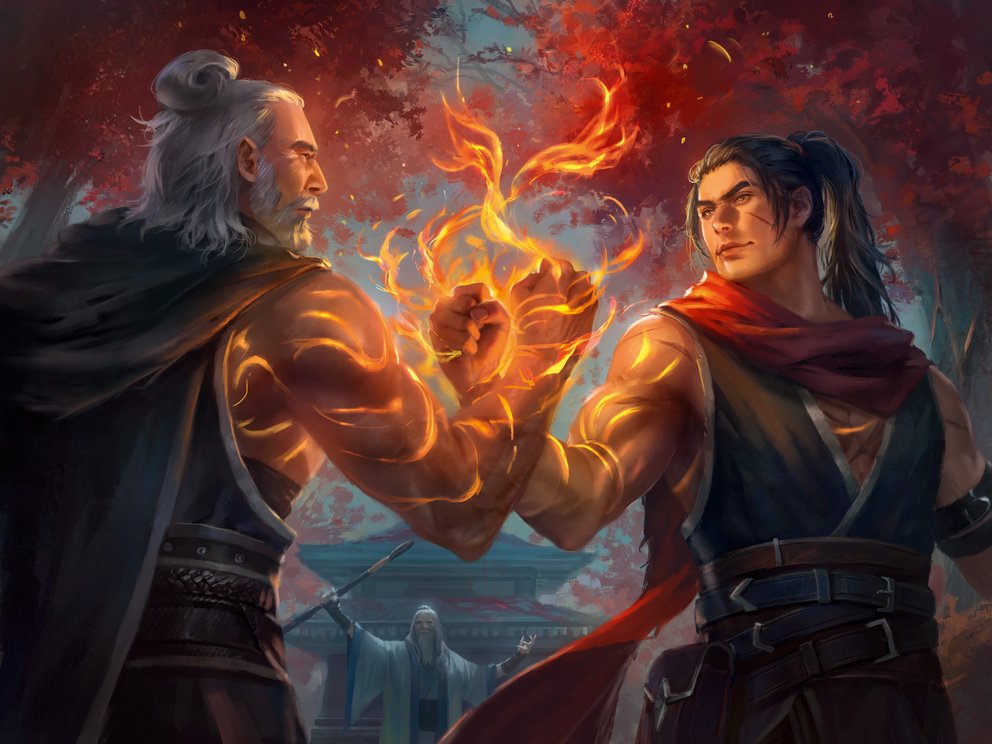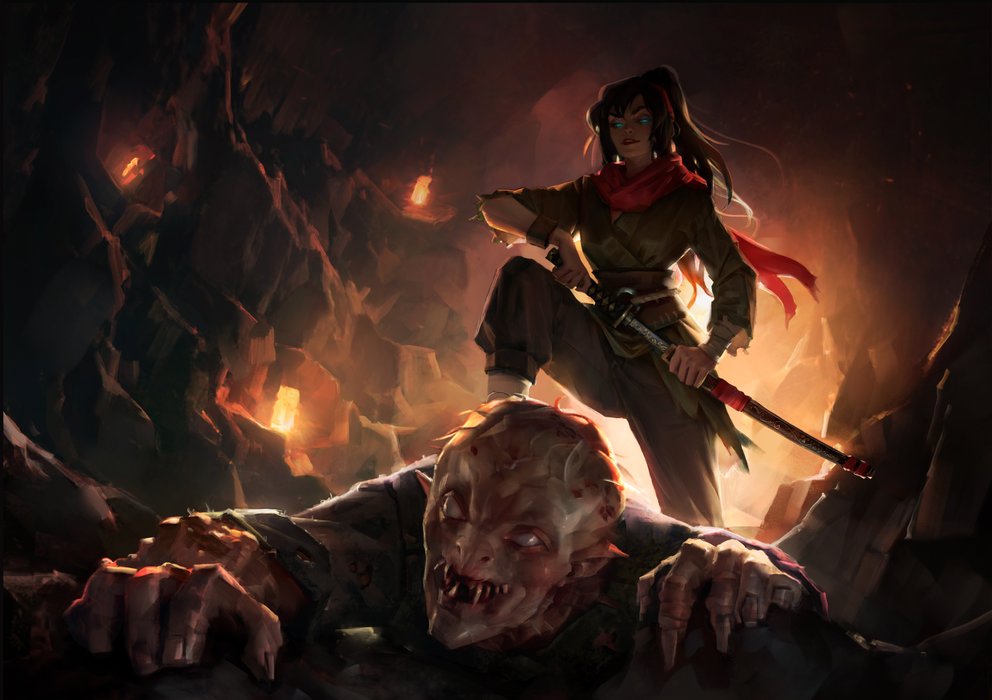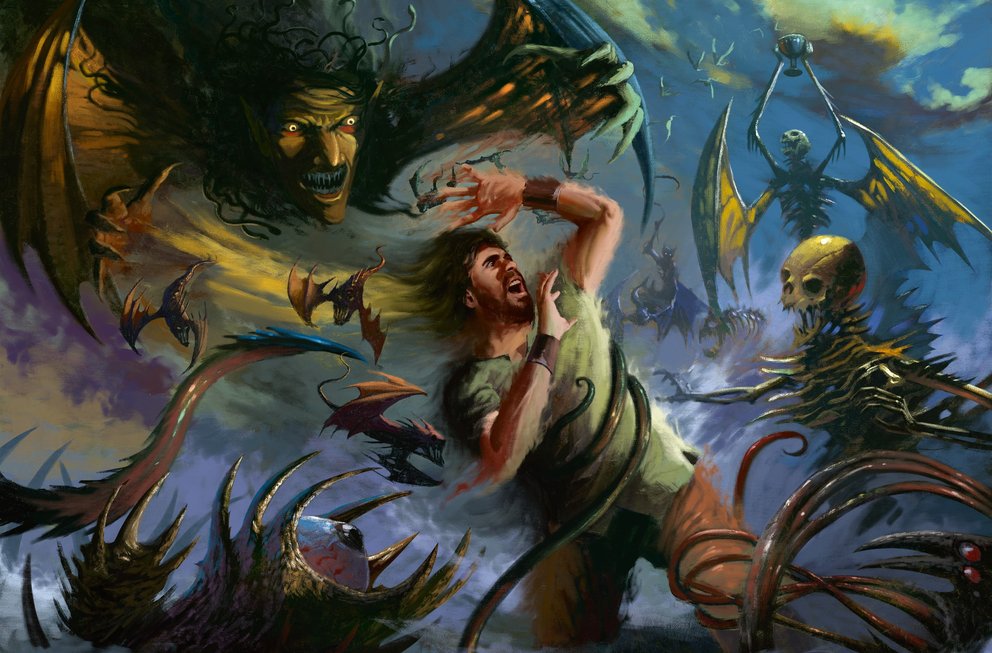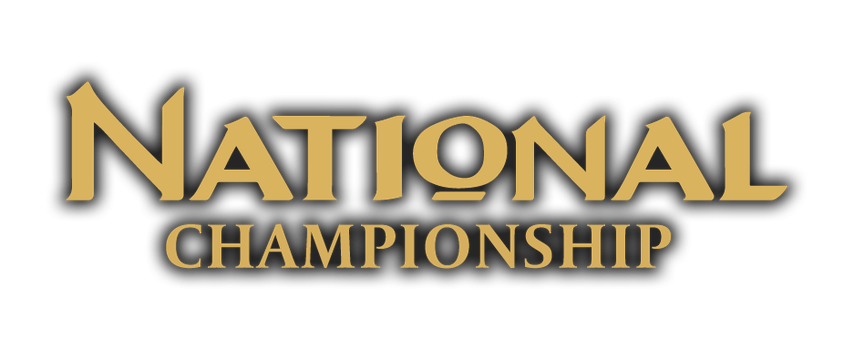Brodie Spurlock can no longer be considered just a rising star in the competitive scene, but rather a titan of it. The young prodigy has been winning events left, right, and center, always with a smile on his face. With Top 8 placings at Pro Tour: Baltimore, United States Nationals, 10 Battle Hardeneds (3 of which he won), and 4 PTI event wins, he is both a force to be reckoned with and a pleasure to play against.
Flesh and Blood at its core is a game about bringing people together. The carefully balanced design and promise of high level competition are what drew me in, but they are only half of what keeps me coming back. The things I've grown to treasure most are the relationships and great memories I've made along the way.
This past year of playing at the highest level has been a journey of improvement for me, not just in my gameplay skills, but in handling my emotions and remaining positive even through the most frustrating situations. It is of great importance to me to be a player whose opponents walk away from our match with a good experience, win or lose, and I've found that striving towards that goal has also helped me perform better in tournaments.
So, with the goal of making every game a great experience for both you and your opponent, let's dive into some of my strategies for handling difficult losses and maintaining good sportsmanship in any situation, and how those things help me build a stronger mindset for competing.

Losing is hard. Some games carry incredibly high stakes, and it's completely understandable to feel crushed after being so close and not getting there. Sometimes there are no stakes, but the way a particular game plays out can still leave you feeling frustrated. No matter the case, what I try to do is focus on the person across from me and how I want them to remember our match. I might have really strong emotions bubbling inside, but it's important to me to put those on pause while I'm still at the table. I thank my opponent for the game and let them know that I enjoyed playing with them, regardless of how I feel about the way it ended. It can be hard to do, but it lets my opponent know I care more about having a good time with them than the fact that they beat me. I know from experience that putting my emotions aside and sharing that final smile with my opponent makes me feel better, too.
Winning doesn't come with the same emotional upset as losing, but it can be equally difficult to handle graciously. It is easy to feel excited after winning in a landslide or with a particularly powerful turn and want to express how much I enjoyed the spectacular ending, but I always want to be careful not to make my opponent feel like I’m rubbing salt in the wound. Even in a very close game, a comment about how I only won because of a lucky draw might make them feel even worse. Instead, I like to mention the things I found interesting about their deck or strategy and wish them good luck for the rest of the day. I can always share the exciting stories of my match with my friends afterward, but focusing on topics other than the way the game ended is often the best approach when an opponent is feeling upset.
Whether I win or lose, it's all about sharing the experience of playing a great game with my opponent. I aim to bring the end of my match to a reminder that both players are here to have fun, and that hopefully we both succeeded in that no matter who came out on top. The end of a match is the time with the most opportunity to exhibit great sportsmanship, but these practices are applicable all throughout the game. There are times when I feel annoyed because of the matchup I’m against or if my opponent draws very well, and I think of those situations as more opportunities to exercise good sportsmanship by not complaining. While it's natural to want to express annoyance, it can make opponents feel awkward because they are just playing the game and it feels like the person across the table is upset with them for doing so. My ultimate rule of thumb is to think before I speak and only say things that will make my opponent feel more engaged and excited to play with me.

My journey in learning how to process my emotions and deal with losses has significantly improved my ability to consistently perform in tournaments. The first step is setting my emotions aside for as long as I’m sitting at the table so I can conclude my match with a positive interaction with my opponent. Then I think it's valuable to use the remaining time in that round to process any frustration I may be feeling and analyze what I could have done better in the game. But as soon as the round timer hits zero, I make a choice to put that match out of my mind and reset as if I'm back in round 1. I've had tournaments in the past where one loss snowballed into more and more losses because I was too focused on a previous round to play tightly in my current one. It has become a priority for me to put the stakes of a game out of my mind while I’m playing. In my experience, thinking about what it could mean to win or lose only ever makes me play worse.
I’ve learned valuable lessons from every tournament I've ever played. While it feels great to win, and that is the ultimate goal, there are many things I look to get out of each tournament besides a high placement. The first is knowledge about my deck, the metagame, matchups I might not have played before, and other gameplay skills that can be applied in the future. I also learn really valuable lessons about the things I'm sharing here, like how to build an unbreakable mindset and deal with bad days. When I have a rough tournament, I think it’s important to take time to process the disappointment that comes with that and analyze what I could have done better along the way. This is what helps me the most with moving past the frustration because any regrets are turned into lessons for the future. I find it very helpful to write these lessons down in the same place each time, so I can reference them when I get stuck later. Once I’ve learned everything I can from a tournament, it no longer serves me to focus on it, so I let the emotions go and put my energy into preparing for the next one.
The last thing I hope to get out of every event is a memorable weekend filled with laughs and new relationships. I don’t want to be so focused on winning that I forget to connect with the awesome people around me. To anyone who wants to be the best Flesh and Blood player they can be, the absolute best piece of advice I can give is to have fun. This game has a remarkable number of decisions that must be made every turn, and being passionate about what you're doing unlocks the ability to think in a way that just can't be done when the back of your mind is busy worrying about the gravity of the match or tournament. Enjoy the game, and find the right lines because you love the puzzle of searching for them.

The next time you're playing Flesh and Blood, I encourage you to think about how you can make each match a more enjoyable experience for your opponent and yourself. My biggest priorities are making each opponent feel comfortable and waiting to deal with my emotions until after the match is over. If you find yourself stressed out trying to achieve a certain result, take a moment to reset and focus on having fun in the process. Flesh and Blood has a truly special community, and we can all strive to exemplify the kindness and camaraderie that make this game what it is.

